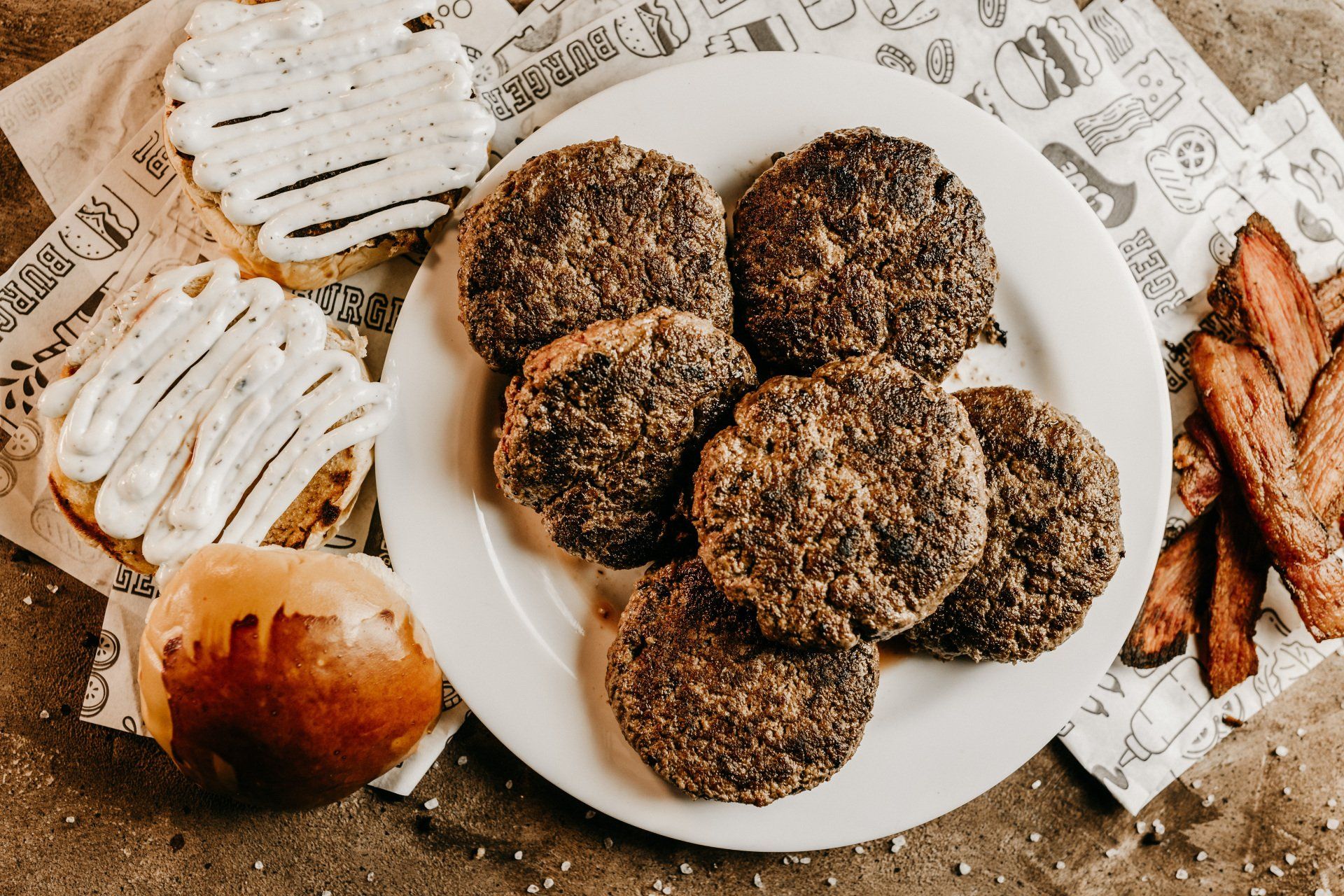It’s the middle of October on a beautiful, crisp, fall day in St. Louis, Missouri. The backyard is covered in leaves, a light breeze continually adds more to the yard, and the sun is coming up over the trees. Water is boiling in preparation for the french press, and the smell of fresh-ground, dark roast coffee beans fills the air of the house. I take my coffee out to the back porch, sip it as I take in the view and the breeze, and begin to write in my gratitude journal. How can someone not be ready to crush the day when it starts like this?
I’ll tell you exactly how an autoimmune flare stirs up. Seemingly out of nowhere, I feel this intense lack of drive, motivation, and crippling fatigue. The coffee doesn’t taste as good, the view is crap, and I’m annoyed at how many leaves are in the yard. 15 minutes ago I was feeling amazing, and now this. Thankfully, within a half-hour, my feelings of gratitude and drive came back. Energy still isn’t the best, but I manage to “white knuckle” my way through the day.
Living with an autoimmune condition can be a real pain in the ass. Not knowing when these “flares” are going to make their presence known. Whether it’s joint pain or swelling with Rheumatoid Arthritis (RA), stomach ache and diarrhea with Inflammatory Bowel Disease (IBD), or fatigue and lack of motivation with Hashimoto’s Thyroiditis, all can really take away from your quality of life.
But, I’m here to tell you, it doesn’t have to be like that. Using what I call “Foundational Lifestyle Pillars”, we can support your body and help you function optimally throughout the day. These include sleep, movement, nutrition, stress management, & life purpose.
1. Hit The Pillow
People can debate nutrition all day; red meat will cause heart disease, eat only red meat for your heart disease, eat all plants, plants are destroying you, etc. Same with exercise; resistance training every day, only do cardio, focus on yoga, don’t ever weightlift, etc. But, when it comes to sleep, I feel like we all can mostly agree. 6–8 hours for most of us, 7–9 if you’re a fitness enthusiast or an athlete. If you can, it should probably be done at night, when the sun is gone. Get sunlight early in the morning, and avoid blue light before bed. Can it really be that easy?
Sleep is when a lot of “debris” that our brain accumulates during the day is cleared. There’s actually a huge inflammatory response that occurs when we sleep. Wait, did you just say inflammation? I thought inflammation was bad? Not exactly! Inflammation is part of what leads to our body healing. Sprain an ankle, you better hope it gets inflamed! Did some heavy squats trying to put muscle on your legs, you need that inflammation. We need that same response when we sleep, especially if we have an autoimmune condition. So much, in fact, that chronic insomnia is associated with an increased incidence of developing an autoimmune disease (1). Think about it, do you sleep more or less when you’re sick?
In those with IBD, poor sleep quality can be associated with more digestive flares. Specifically, self-described sleep disturbances were associated with a 2-fold increased risk of active disease 6 months later (2). This is how I think about it: autoimmune flares are an inflammatory response. Melatonin, everyone’s favorite sleep aid, has very potent anti-inflammatory effects (That doesn’t mean you should be taking large doses of melatonin before bed, if anything, it means you should be setting up your sleep environment to optimize melatonin production). You have disrupted sleep → less melatonin released →more inflammation→ more autoimmune flares: diarrhea, joint pain, fatigue, weight loss issues, constipation, brain fog, you name it.
2. Move That Body
I’ve never had a love/hate relationship the way I do with exercise. It’s by far one of my favorite things to do on this earth, but, in the moment of doing deadlifts and burpees, there’s clear discomfort. The biggest joy comes once you finish a workout. I mean, doesn’t it feel amazing! On the flip side, I’ve had people in my space (Functional/Natural/Integrative Health) say people need to exercise differently if they have autoimmunity. I think that’s far-fetched. I do agree, however, that it’s hard to give blanket exercise advice. Rather, we should be teaching you themes and strategies to empower you to find your own routine, one that works for you.
It’s probably a good idea to have the focus of your exercise routine be consistent, low-level physical activity throughout the day, rather than to go hard for an hour and sit on your laurels the rest of the day. This is especially true if your main goal with exercise is health (I think there are also performance benefits from consistent movement, but that’s beyond the topic of this article). Take walking, for example. Once you finish a meal, you could set a timer on your phone for 10–15 minutes and go for an easy walk, preferably outside if you can. That way you’ve attached walking, a habit you might be trying to cultivate, with eating, a habit you likely already do 3 times per day. You could also take a 5-minute movement break every hour, to work on some mobility, stretching, or stability exercises. Once you combine those with your one-hour gym routine, you’ll be amazed at how much more productivity and energy you feel throughout the entire day.
Obviously, there’s such a thing as taking things too far (overtraining), so listen to the signals your body is giving you. If you’re supposed to max out, but warming up feels heavy, maybe it’s not PR day. If you slept like crap (to build off our first point), maybe today is a walking and mobility-focused day, or a movement practice day.
Pain vs. Discomfort
I’m not a fan of doing exercise that’s “painful.” If you have pain when exercising, make sure you find a movement specialist (Chiropractor, Trainer, Physical Therapist) who can help identify the root cause of your movement concerns. However, if you’re having, say, discomfort when running, or the leg “burn” when doing squats, that’s totally okay. I subscribe to the idea of if it challenges you, it changes you. Not saying you have to do this all the time, but if your goal is to create the adaptation from exercise (bigger muscles, better endurance, more strength) it might have to be a little challenging at times.
3. Are You What You Eat?
Decades ago, you’d have been laughed out of the room for suggesting that food has an impact on how you feel. Thankfully, today, most of us have that understanding, but it goes beyond just what you eat, and into the realm of: Can you digest and absorb the nutrients from the food, you’re eating? Those with Celiac Disease (Autoimmunity to part of our intestines) have a much harder time absorbing their nutrients. The same goes for those with Pernicious Anemia (Autoimmunity to part of our stomach). That’s why it’s important, for those with autoimmunity, and every one frankly, to optimize their digestive health.
Part of optimizing your digestive health is eating a nutrient-rich diet. A nutrient-rich diet that isn’t littered with foods you’re sensitive and/or allergic to. Therein lies the tricky part. Most of us (unless you’re a carnivore) know that fruits, vegetables, leaner minimally processed meats, organ meats (for my carnivore folk), nuts, seeds, and tubers are nutrient-rich. We just may not know if any of these “healthy foods” are causing us flares. This is where food journaling can be really helpful. Write down what you ate, set your time for an hour, and then write down how you feel an hour later. Pay attention to your digestion: Are you feeling bloated? Gassy? Maybe in some abdominal discomfort? Also, look out for more vague symptoms like fatigue, brain fog, lack of focus, joint pain, or skin reactions.
If cost isn’t an issue for you, food sensitivity testing might be an option, but things like that seem to be outsourcing information our bodies should be able to pick up on their own. Say you know you get a headache whenever you eat peanut butter, do you need a $300 test to tell you not to eat it? Or what if it says you’re not sensitive to peanut butter? Are you going to not listen to how your body feels and go with what the tests say?
Clinically, in patients with autoimmunity, I’m a big fan of The Paleo Diet. Yes, I’m sure there are those with Hashimoto’s that can handle gluten just fine, but it’s important to set that dietary baseline. I’d hate for someone with IBD or RA to go through all these biologic medications (Humira for example), only to find out later that it was dairy and eggs causing their flare-ups.
4. Just Meditate and Everything Goes Away
Stress might be one of the more difficult “foundational lifestyle pillars” to address. It’s almost as if you can’t escape it. It might be related to your job, but you need to work in order to keep a roof over your head and food on your table (paleo-friendly food that is 😉). It might be your relationship, but hey, you’ve been together 20 years and don’t have the time to find someone else.
I’ve never been a fan of “You need to reduce your stress!” Many times, that makes people feel more stressed! Rather than escaping or reducing it, maybe you should work on your relationship with it. Work to identify why you’re feeling “stressed”, what is it about this situation or event that’s driving your worries? Don’t be afraid to seek out the guidance of a therapist for this one. It should be more common for people to have talk therapists, than physical therapists.
For some people, meditation can act as a bridge to better understand the relationship with your stress. Achieving that level of mindfulness and awareness, allows your brain to think from an unbiased perspective. Taking out the emotion, think objectively. “Okay, why is it that whenever my boss makes me work late, I get so stressed? Is it because I think I’m underpaid? Under-appreciated? Are there things I’d rather be doing? Why would I rather be doing those things?”
Meditation doesn’t have to mean sitting in the uncomfortable lotus position for 20 minutes, it could be any activity where you’re 100% present. Maybe it’s walking. Maybe it’s working on your car. Maybe it’s scrapbooking. Maybe it’s exercise. Maybe it’s writing health articles about stress for people on the internet to read…
5. Put Purpose To Your Passion
This is the most undervalued aspect of living a “healthy” life: Life Purpose. The Japanese call it Ikigai, which translates into “reason for being.” What is it that gets you out of bed in the morning? What is it that makes you excited about tackling the challenges of the day? What is the thing that gives you this great sense of meaning in life? Why do you think so many retired people end up getting these little part-time jobs or starting brand new businesses? They want that sense of purpose back.
For some people, the answer is their health. I’m here to tell you I believe there are better choices. If you focus too much on your health, life will pass you by. But if you focus on your life and its purpose, health will come. I’m a huge fan of Jordan Peterson’s work, especially his ideas around finding purpose. He talks about how for some people (those with depression or feelings of lack of purpose), having even the most simple, task execution-based job, such as a grocery store clerk, is critical for them. It gives them a sense of purpose, power, and self-control in their day.
I’m not saying you need to go out and find the most simple job you can find, but seek to find something that makes you feel engaged. Engaged enough that you want to get better at it, engaged enough that you’re willing to put in the time and effort to push through challenges that arise. If you’re not willing to put in the effort to learn how to throw a perfect spiral, don’t think you belong in the NFL, but if being the best parent you can possibly be “fills your cup up” you’ll overcome anything to get better, pursue that.
If you find yourself struggling with an autoimmune condition, and you can’t explain in under 30 seconds what your “reason for being” is, I highly encourage you to start there. Take some time, get out a pen and a piece of paper, and start writing what your passions are. I see so many people in this world who are seemingly just trying to make it to tomorrow, just trying to get through the day. Of course, there will be days where we feel off and days that we just want to be over. But if this is the norm for you, stop reading this article and go decipher a way to put purpose to your passion.
You’ll notice much of the foundational lifestyle pillars we’ve discussed are applicable to anyone, autoimmunity or not. That’s the point. For many of us having an autoimmune “disease” is an indication that something else in our life is off. The trick is troubleshooting which pillar needs more support: sleep, movement, diet, stress, or purpose. You might also notice that we haven’t touched on digestive health and its implications in autoimmunity. That’s because the previous 5 all play such a paramount role in shaping the health of your gut. You can indirectly address the gut by directly addressing sleep, exercise, diet, stress, and purpose. Then once you have those in order, you can directly address the gut.
If you’re wanting more specific information on how to support your autoimmune condition, our team at The HIVE Natural Health Center understands the nuances surrounding autoimmunity, and how to tailor care to your unique needs.
As always, Trust in Your Gut.
Disclaimer: The contents of this article are for educational purposes only, and are not intended to diagnose or treat any condition. Do not apply any of the information in this article without first speaking with your doctor.








